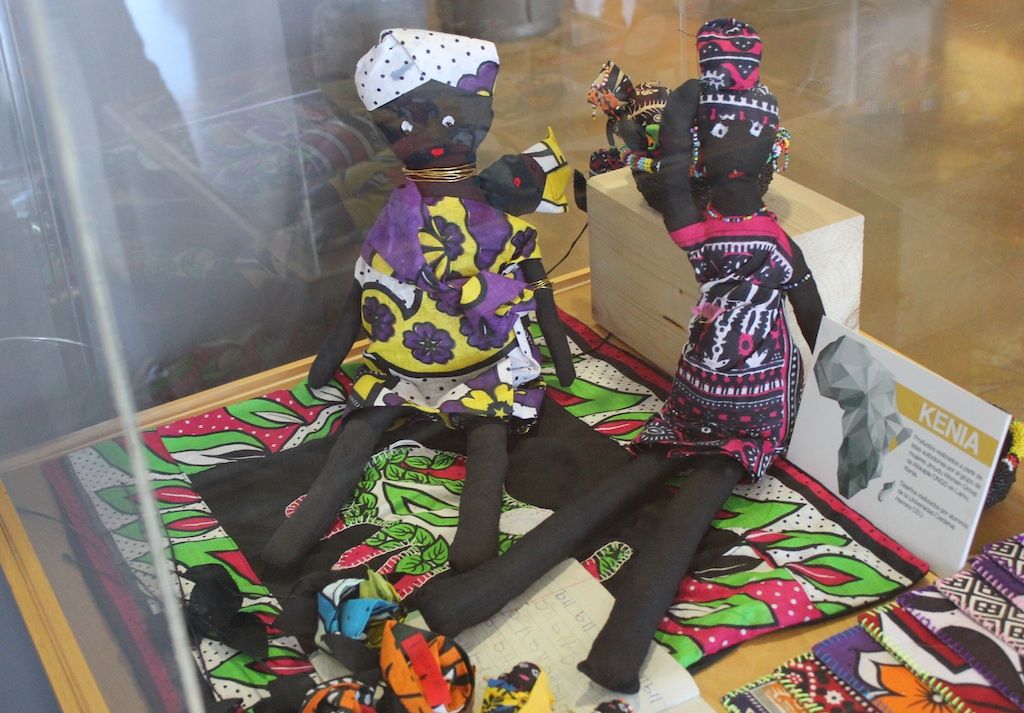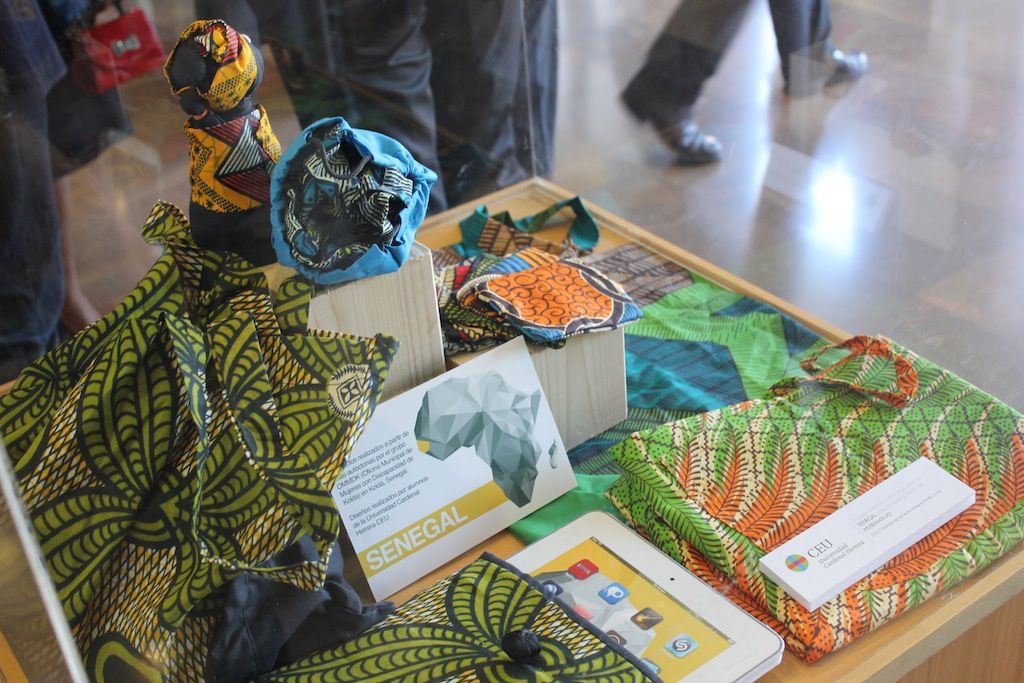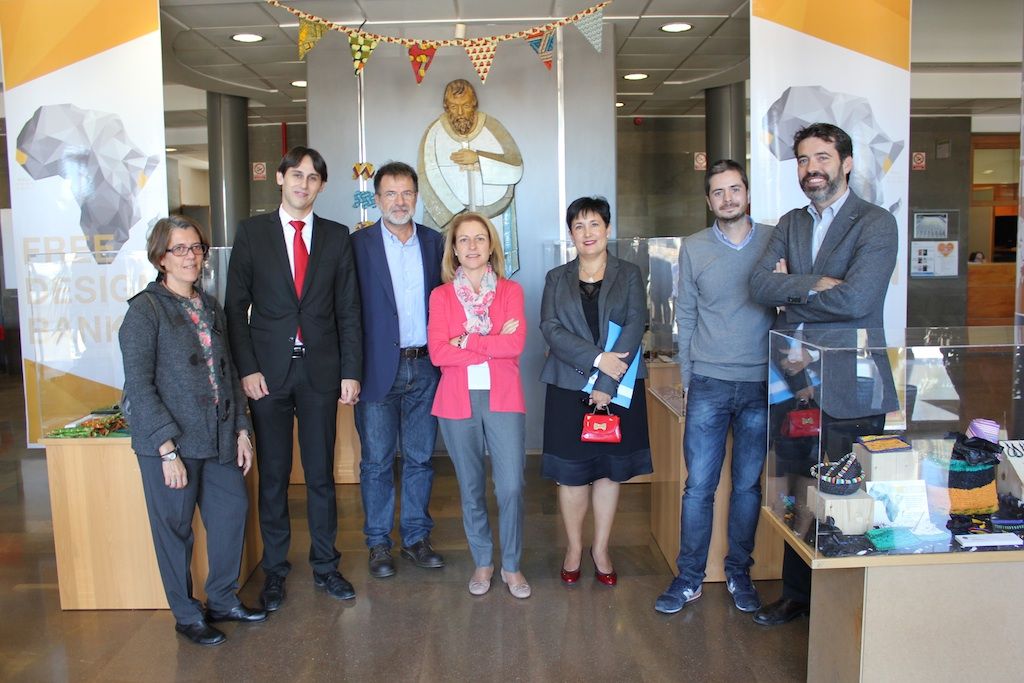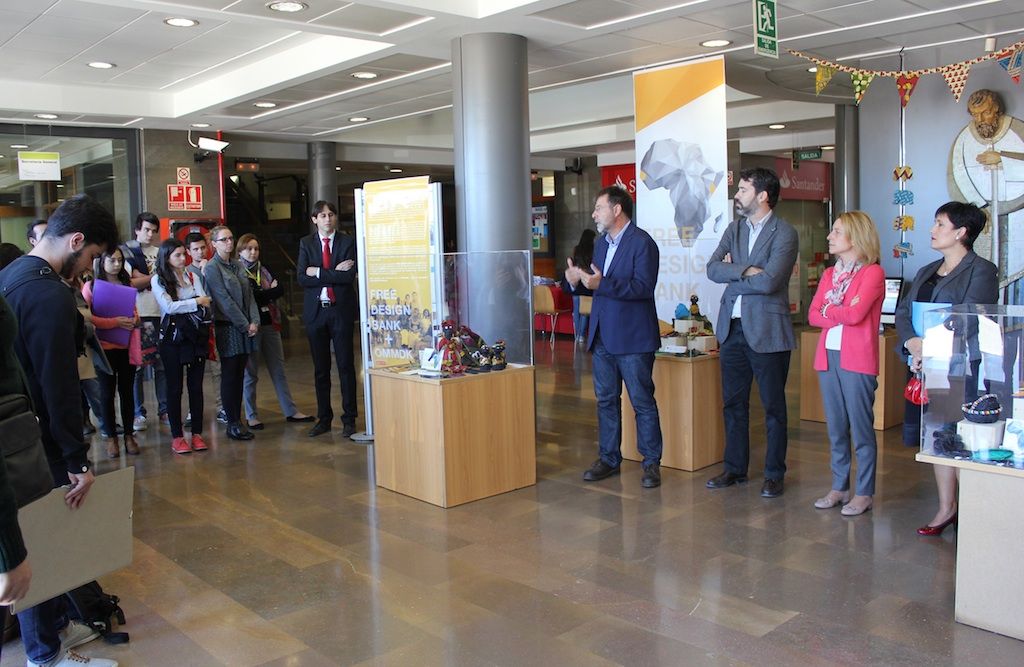CEU-UCH Free Design Bank works together with the NGO Afrikable and the Asociación Gumersindo Rodríguez to sell the products, which are made out of cloth and recycled plastic and at the moment are exhibited in our university’s Campos Górriz building

A group of female artisans from the island of Lamu, off the coast of Kenya, and from the town of Kolda in the south of Senegal, has found a new way of improving its living conditions. They are making a range of products out of cloth and recycled plastic that they designed together with students from the Bachelor in Industrial Design and Product Development at CEU-UCH Cardenal Herrera University. The project Free Design Bank, which Professor Manuel Bañó Hernández coordinates, works together with the non-governmental organization Afrikable and the Asociación Gumersindo Rodríguez to sell the artisanal products, which are currently on exhibition in the hall of the Luis Campos Górriz building. The aim in the sale of these products is to improve the living conditions of women who in these two African countries are at risk of social exclusion.
Manuel Bañó, professor in the Bachelor of Industrial Design Engineering and Product Development, has for several years been coordinating the project Free Design Bank. The project in Kenia works in partnership with the NGO Afrikable, Jimudu Women Group (a group of Kenyan women who produce female clothing) and Lamu Recycling Solution (female artisans who use recicled materials) to develop new products. Students of the Bachelor of Industrial Design Engineering at CEU-UCH have recently volunteered to participate in the initiative. They put their creativity and knowledge to the service of these Kenyan women, and expand the range of products they can sell in the western world.
Inma Bailén and Jordi Alberola, both industrial design students at CEU-UCH, under the project Free Design Bank did similar work with disabled women in Kolda, a town in the south of Senegal. Apart from the general discrimination women in Senegal experience, these women – who have a form of physical, intellectual, visual or sensorial impairment or suffer from leprosy – are also discriminated against for their disability. The goal of the project in Kolda, which is financed by the Santander group and the Asociación Gumersindo Rodríguez, is to train these women in the design, production and commercialization of artisanal products, in accordance with sustainability and gender equality criteria.

Exhibition of products
Laptopsleeves, bags, bracelets, accessories, decorative items and more. There is a broad range of items, all equally alluring from the design point of view. All items are produced from materials that the women from Lamu and Kolda can easily obtain and work with.
More photos of products by Free Design Bank can be seen here.
The products made by Afrikable can be bought in their local store in Lamu (Kenia) or through the webpage www.afrikable.org. Products made by women in Kolda (Senegal) are sold by the NGO Dexde. Catalogues can be requested by e-mail at [email protected].
At the moment, the products are on display in the Luis Campos Górriz building at the CEU-UCH campus in Alfara del Patriarca (Valencia). The exhibition was inaugurated by CEU-UCH rector Rosa Visiedo, representatives of the Santander group, which finances the project, and members of the ESET Technical School of Design Engineering and the Chair of Solidarity at CEU-UCH.

Improving living conditions
The money that is earned with these products will improve the living conditions of people on the Kenyan island of Lamu, which in spite of its cultural interest as a UNESCO World Heritage site faces significant development problems: more than 30 per cent of the population (especially children) faces malnutrition, more than 65 per cent lives below the poverty line, one third of all children does not go to school, and many women are at risk of social exclusion.
Kolda is located in the poorest region of Senegal, which in turn is one of the poorest countries in the world. The goal of the project is to reduce the number of women in poverty there. The successive armed conflicts in the region of Casamance – where agriculture accounts for 80 per cent of income – since 1982 have led to the abandonment of villages, especially by men. Yet, only 20 per cent of revenue goes to women, and they have limited control over land and natural resources. The situation is even worse for disabled women, who are especially vulnerable due to their poor access to basic services, such as healthcare and education.
Free Design Bank
The social project Free Design Bank – which started 14 years ago at the ESET Technical School of Design Engineering at CEU-UCH – is coordinated by designer Manuel Bañó Hernández and is financed by the Santander Group. It operates on the basis of cooperation, co-development and fair trade through the exchange of knowledge and experiences between designers, students and artisans from poor countries, enabling the last to understand new markets, and to get acquainted with the culture and the economy in the respective countries. The aim is for this to be a mutual and equal exchange.
The main objective of Free Design Bank is to design and manufacture competitive products for the benefit of small workshops and cooperatives that do not have financial resources and which are located in regions of the world where poverty indexes are highest and where new ways of designing and new production systems are needed to improve living standards. Free Design Bank has several ongoing projects with producer groups in Kenya, Senegal, Sri Lanka and Ecuador, and is working on new projects in Ghana and the Mexican province of Guadalajara.







